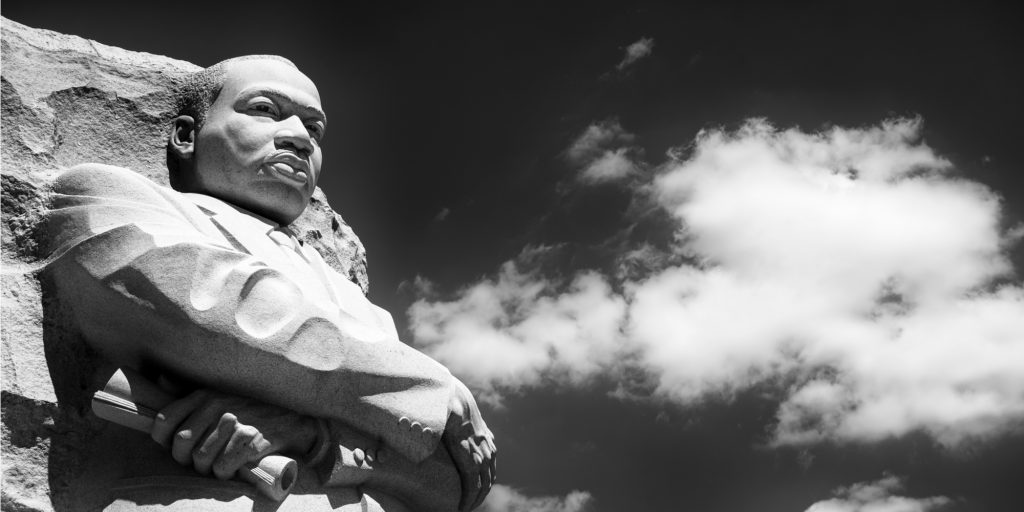
Published January 18, 2021
Monday is the day America celebrates the life of the Rev. Martin Luther King Jr. It’s fitting, therefore, to use the occasion to think about race in today’s America. The latest data from the Democracy Fund paints both a hopeful and sobering picture.
The most frightening data involves perceptions of racial discrimination today. More than 56 years since the passage of the Civil Rights Act of 1964, more than 80 percent of Black Americans still believe they face either a great deal or a lot of discrimination because of their race. The nation as a whole is split on this question; 50 percent of Americans say Black people face a great deal or a lot of racial discrimination and 50 percent believe they face a moderate amount, a little, or none at all. The parties are sharply divided over this question too, with about 80 percent of Democrats and Democrat-leaning independents in the first camp and about the same proportion of Republicans and GOP-leaning independents in the second camp. This sharp divergence in perceptions is one of the driving forces in politics today.
These viewpoints carry over into a host of other views about racial discrimination. Nearly 75 percent of Black people believe they have gotten “less than they deserve” over the past few years, and less than a quarter believe that they can work their way up without “special favors” like past White ethnic minorities. Democrats largely agree with this view while Republicans do not. Black people and Democrats also agree that “generations of slavery and discrimination” still make it harder for Black people to advance, while Republicans do not. Black people and Democrats also agree that the summer’s events in the aftermath of the killing of George Floyd were mostly peaceful, although interestingly, Democrats and very liberal voters were much likelier than Black Americans themselves to say this. Republicans largely thought they were mostly violent, a view shared by a plurality of independents.
Click here to read the rest of this piece at the Washington Post’s website.
Henry Olsen is a senior fellow at the Ethics and Public Policy Center.








